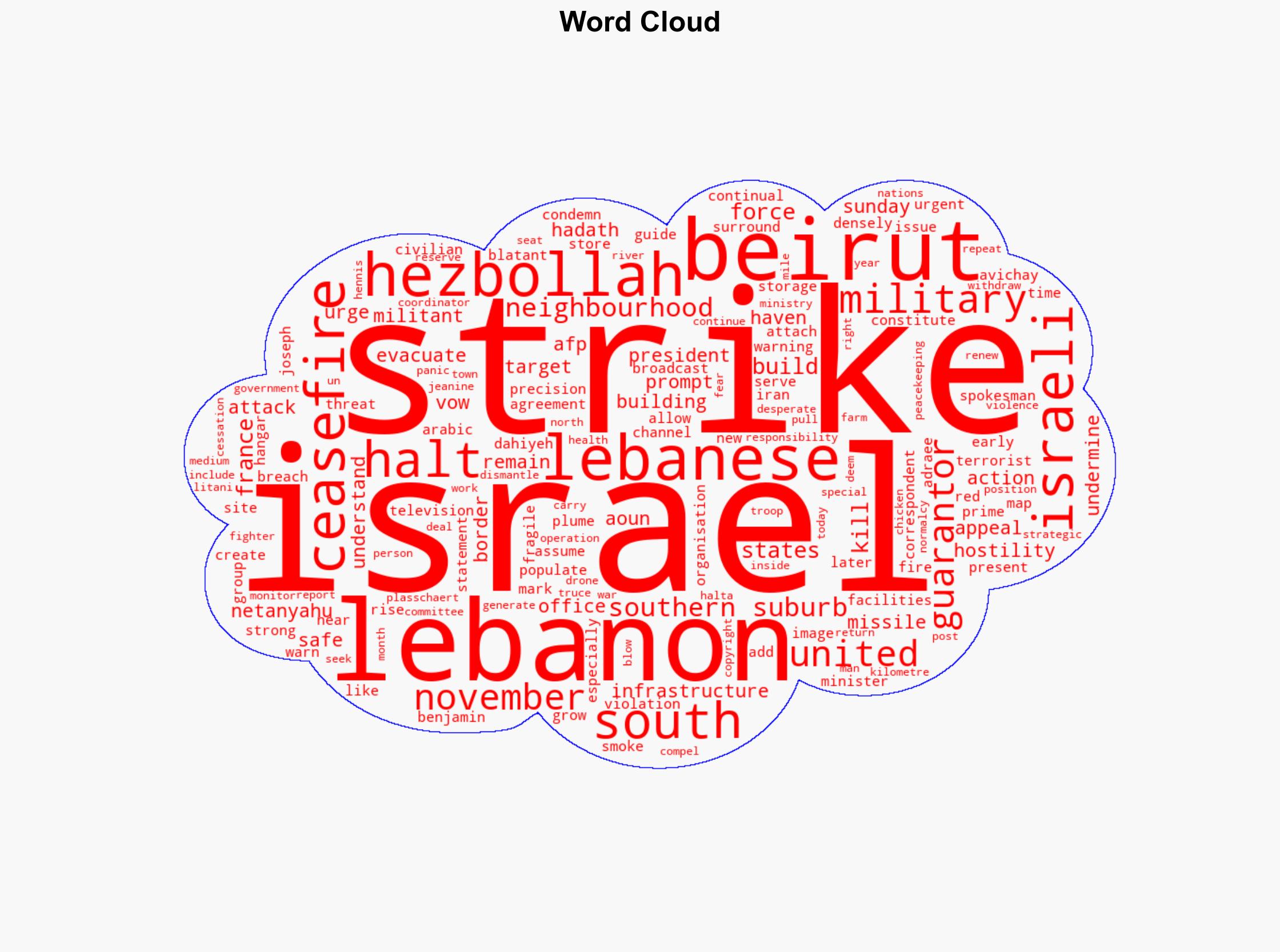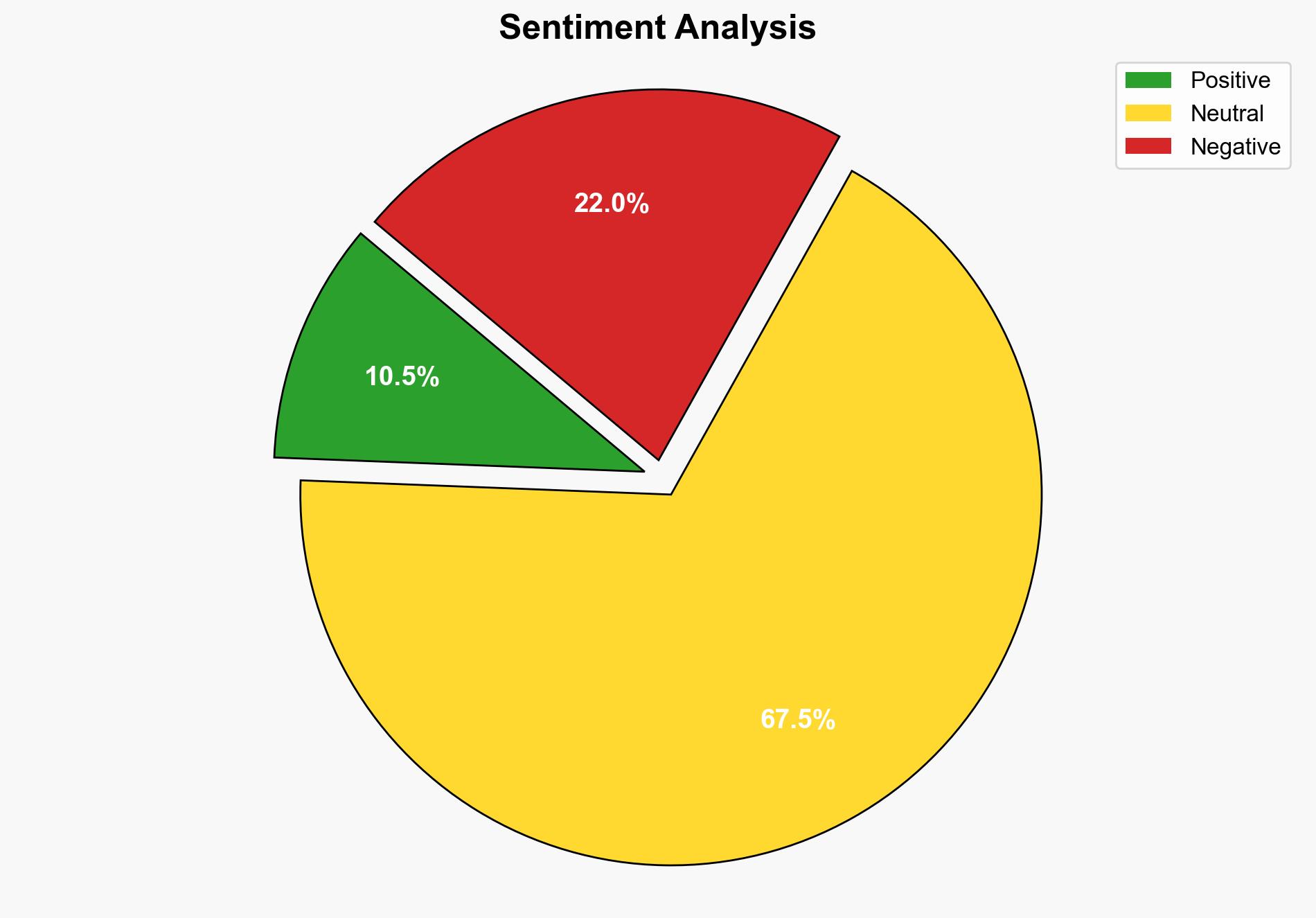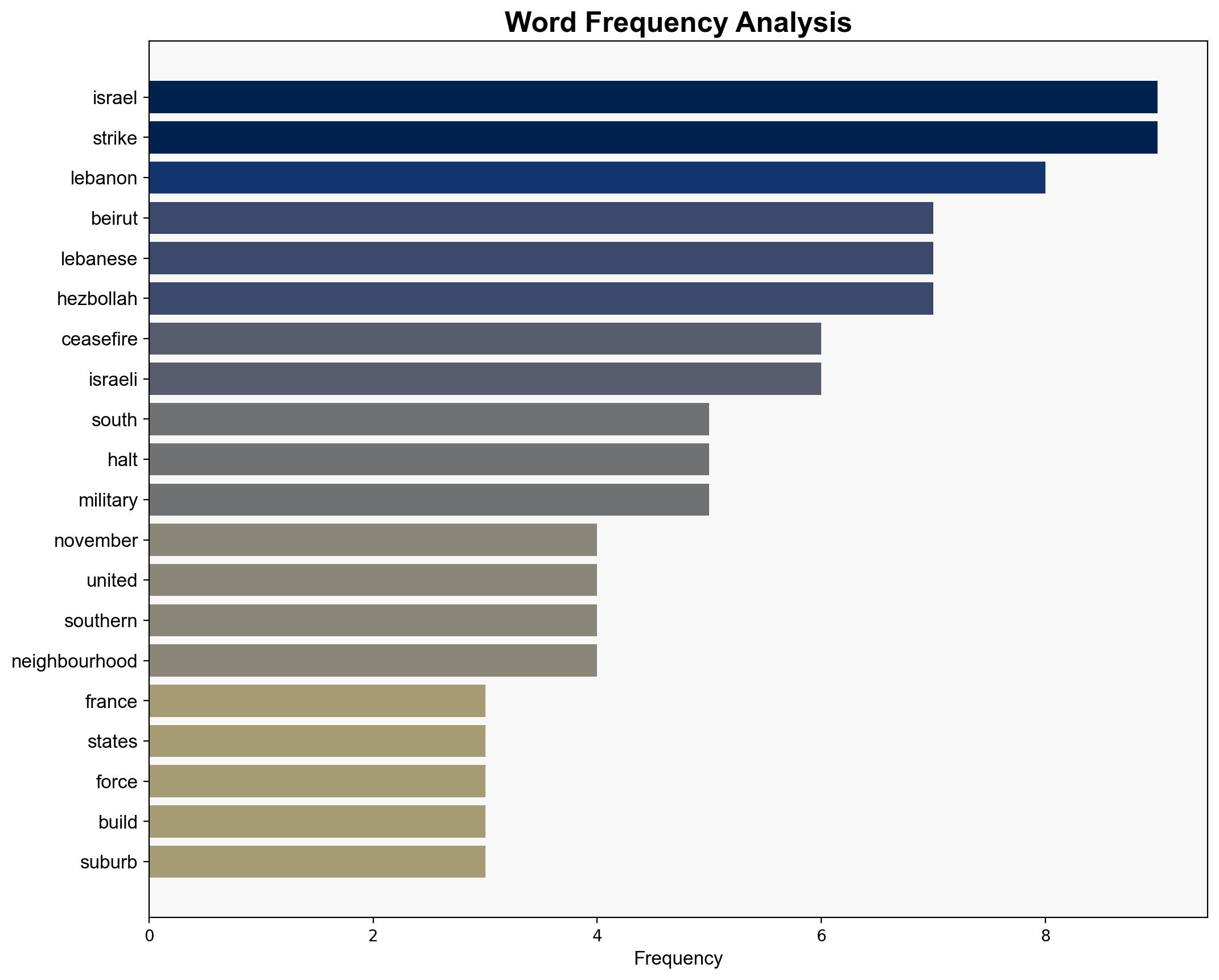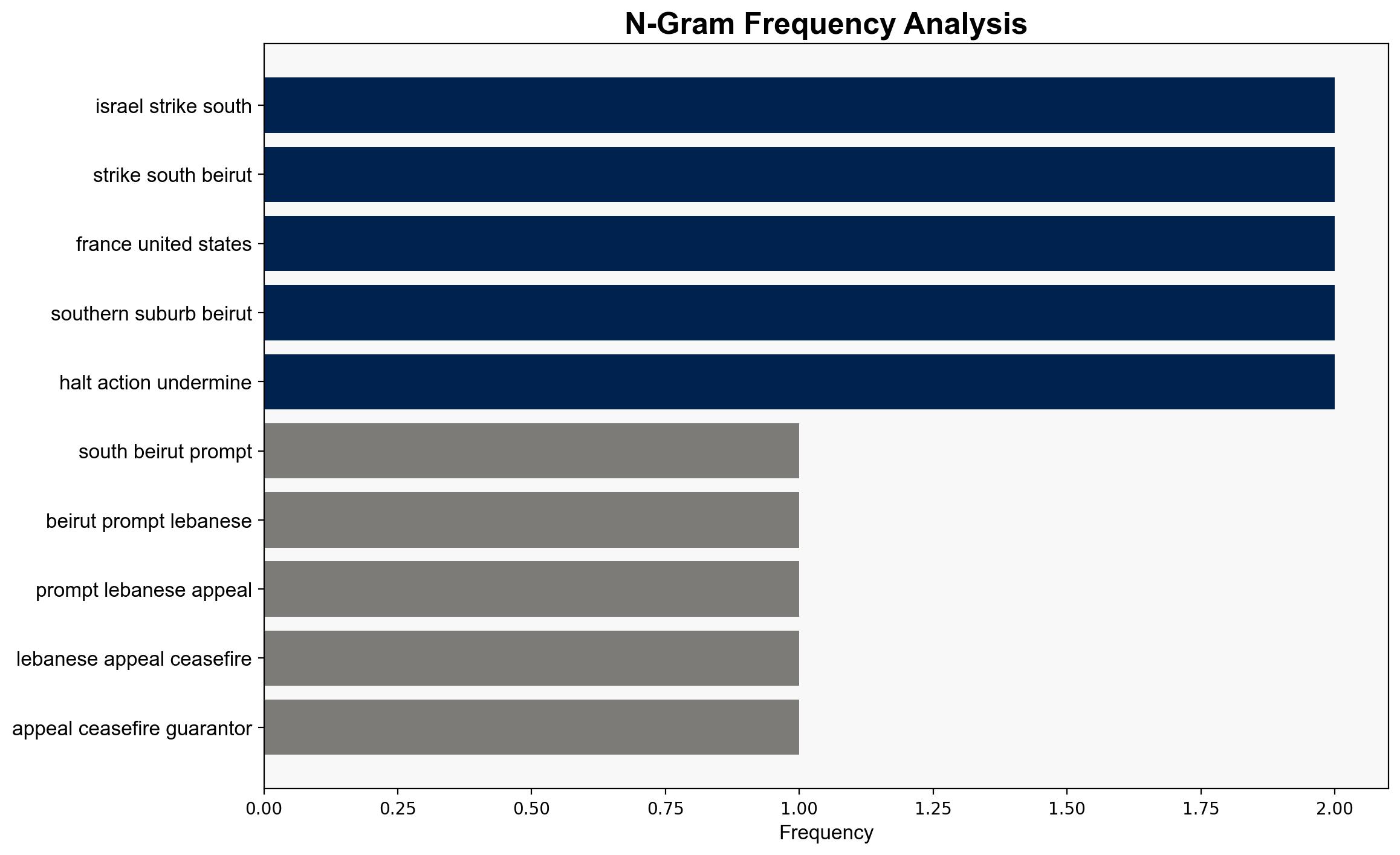Israel Strikes South Beirut Prompting Lebanese Appeal To Ceasefire Guarantors – International Business Times
Published on: 2025-04-27
Intelligence Report: Israel Strikes South Beirut Prompting Lebanese Appeal To Ceasefire Guarantors – International Business Times
1. BLUF (Bottom Line Up Front)
Recent Israeli airstrikes on South Beirut have escalated tensions, prompting Lebanese authorities to appeal to international ceasefire guarantors, namely France and the United States, to intervene. The strikes targeted Hezbollah infrastructure, raising concerns about renewed hostilities and regional stability. Immediate diplomatic engagement is recommended to prevent further escalation.
2. Detailed Analysis
The following structured analytic techniques have been applied to ensure methodological consistency:
General Analysis
The Israeli strikes targeted Hezbollah’s missile storage facilities in the southern suburbs of Beirut, an area known for Hezbollah’s strong presence. This action follows a pattern of Israeli preemptive strikes aimed at curbing Hezbollah’s military capabilities. The Lebanese President has condemned the strikes as a breach of the November ceasefire agreement, highlighting the fragility of the current peace. The strikes have led to heightened tensions, with potential implications for regional security dynamics.
3. Implications and Strategic Risks
The immediate risk is the potential for retaliatory actions by Hezbollah, which could lead to a broader conflict involving regional actors. The strikes undermine the ceasefire agreement, increasing the likelihood of renewed hostilities. There is also a risk of civilian casualties and displacement, which could exacerbate humanitarian conditions in Lebanon. The involvement of international guarantors is crucial to stabilize the situation and prevent further escalation.
4. Recommendations and Outlook
- Engage in diplomatic efforts with France and the United States to reinforce the ceasefire agreement and prevent further military actions.
- Monitor Hezbollah’s response and prepare for potential retaliatory attacks that could destabilize the region.
- Scenario-based projections:
- Best Case: Successful diplomatic intervention leads to a reinforced ceasefire and de-escalation of tensions.
- Worst Case: Escalation into a broader conflict involving multiple regional actors.
- Most Likely: Continued low-intensity skirmishes with intermittent diplomatic engagement.
5. Key Individuals and Entities
– Benjamin Netanyahu
– Joseph Aoun
– Jeanine Hennis-Plasschaert
6. Thematic Tags
(‘national security threats, regional stability, ceasefire agreements, Hezbollah, Israel-Lebanon conflict’)




